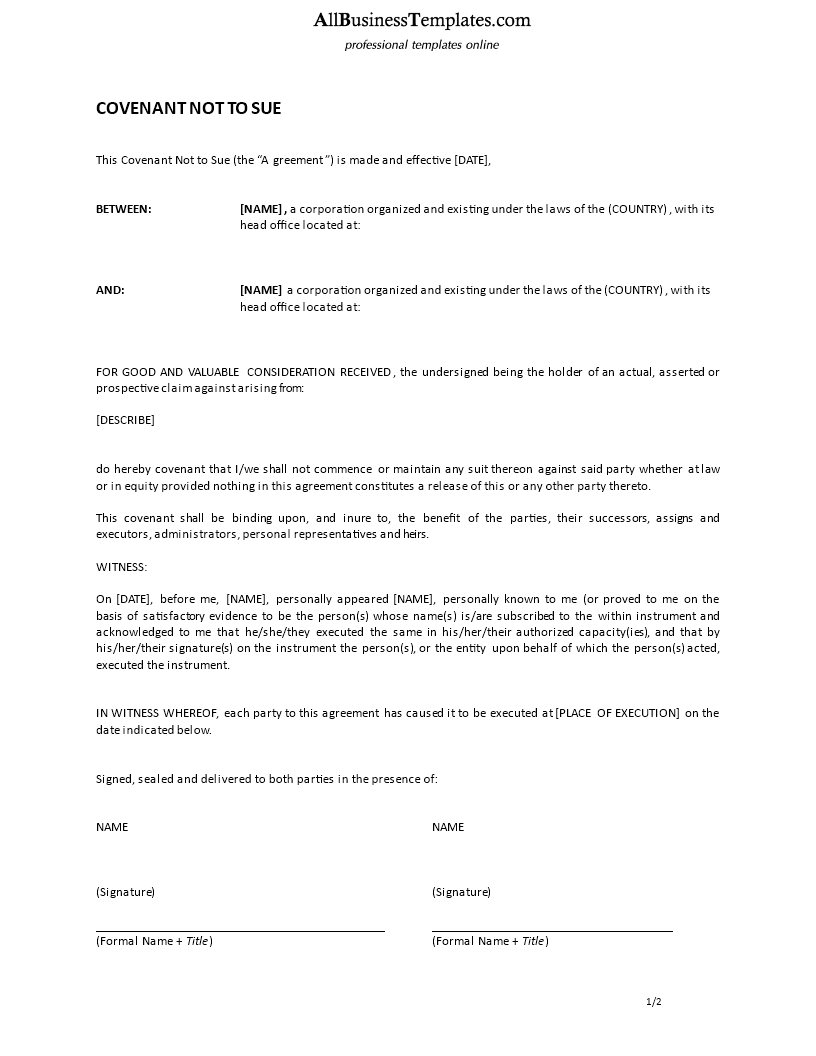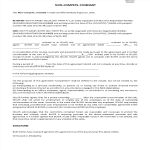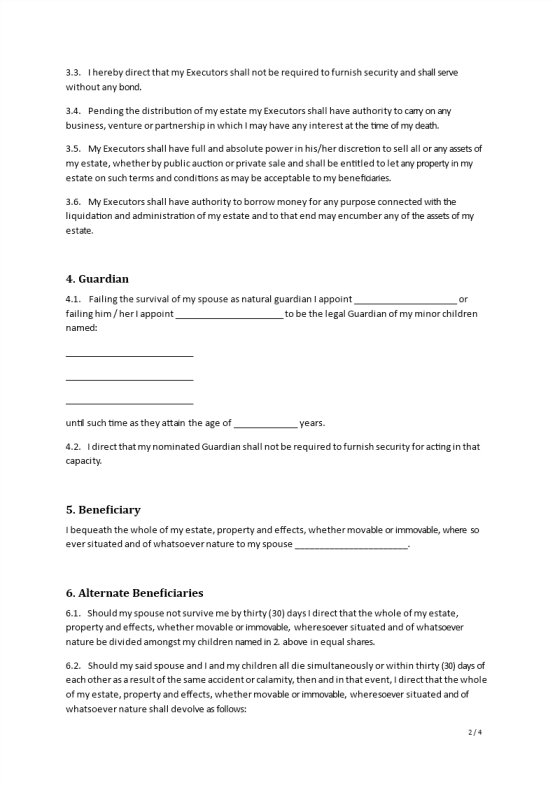Covenant Niet aanklagen template

Opslaan, invullen, afdrukken, klaar!
De beste manier om een Covenant Niet aanklagen template te maken? Check direct dit professionele Covenant Niet aanklagen template template!
Beschikbare bestandsformaten:
.docx- Gevalideerd door een professional
- 100% aanpasbaar
- Taal: English
- Digitale download (35.43 kB)
- Na betaling ontvangt u direct de download link
- We raden aan dit bestand op uw computer te downloaden.
Wettelijk verbond vervolgen wederzijdse vrijlating
What does a covenant not to sue mean? When forming a covenant not to sue, how do you go about it? Download our sample template that you can download and use. It includes all the necessary information you need to protect your company from legal action. It also provides a clear record of the agreement.
A Covenant Not to Sue (CNS), also known as a Release and Covenant Not to Sue, is a legally binding agreement between two parties in which one party (the releasor) agrees not to sue or bring legal action against the other party (the releasee) for specific claims, disputes, or liabilities. It is a legal contract commonly used to settle or resolve disputes and prevent future litigation.
Key points to understand about a Covenant Not to Sue:
- Purpose: The primary purpose of a CNS is to reach a mutually acceptable resolution to a legal dispute or potential claim. It offers a way to avoid the time, expense, and uncertainty of litigation.
- Scope: The scope of the CNS is defined in the agreement. It specifies the claims, disputes, or potential causes of action that are being resolved, and it typically includes a broad description of the legal matters being addressed.
- Consideration: In exchange for agreeing not to sue, the releasor often receives something of value, known as "consideration." This consideration can take various forms, such as a payment, a promise not to pursue counterclaims or other benefits.
- Waiver of Rights: By signing the CNS, the releasor voluntarily waives their right to file a lawsuit or legal action related to the specified claims. This waiver is legally binding and enforceable.
- Legal Effect: A properly executed CNS is a legally enforceable contract, and if one party breaches the agreement by pursuing legal action, the other party can seek remedies for the breach.
- Confidentiality: CNS agreements may include provisions for confidentiality, restricting the parties from disclosing the terms of the settlement to third parties.
- Exclusivity: In some cases, a CNS may include a provision stating that the agreement is the exclusive remedy for the disputes covered by the agreement, effectively preventing the releasor from pursuing alternative legal actions.
- Non-Admission of Liability: CNS agreements often include language stating that the releasee does not admit any liability or wrongdoing by entering into the agreement. This is a way to protect the releasee's reputation and legal position.
- Legal Advice: It is advisable for both parties involved in a CNS to seek legal advice before signing the agreement to ensure they understand the implications and consequences. Legal counsel can help draft, review, and negotiate the terms of the CNS.
- Finality: Once a CNS is signed and executed, it generally marks the final resolution of the specific claims or disputes covered by the agreement, and the releasor cannot revisit the matter in court.
Covenants Not to Sue are commonly used in various contexts, including personal injury settlements, commercial disputes, employment matters, and intellectual property disputes. They offer a way for parties to reach a compromise, avoid protracted litigation, and bring closure to contentious issues while preserving legal rights in areas not covered by the agreement.
A covenant not to sue legally obliges a party that could initiate a lawsuit not to do so. The covenant is specifically made between two parties, and any third party that wants to make a claim is legally allowed to do so. Covenants not to sue are used to settle specific legal issues outside of the court system. Parties may enter into this type of agreement in order to prevent a protracted, expensive lawsuit. In exchange for the covenant, the party that could seek damages may be provided with compensation or may be given assurances that the other party in the agreement will conduct a specific action.
DISCLAIMER
Hoewel all content met de grootste zorg is gecreërd, kan niets op deze pagina direct worden aangenomen als juridisch advies, noch is er een advocaat-client relatie van toepassing.
Laat een antwoord achter. Als u nog vragen of opmerkingen hebt, kunt u deze hieronder plaatsen.



